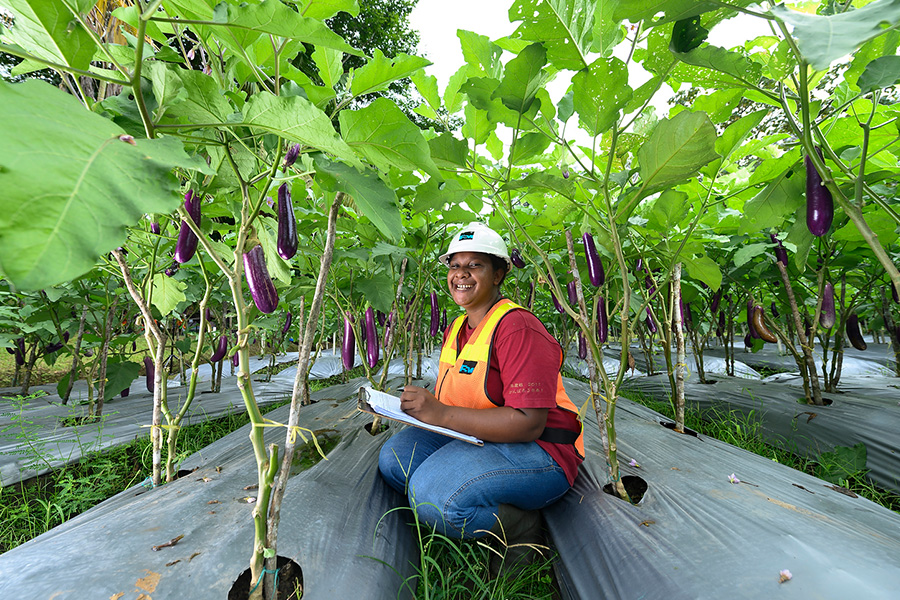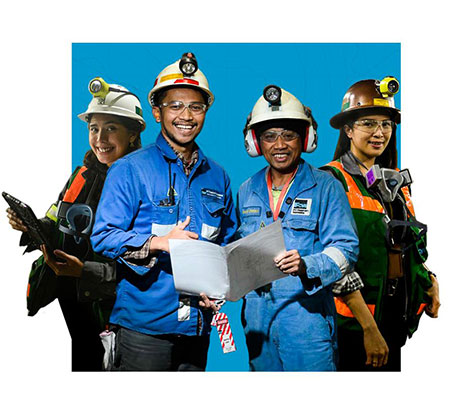29 November 2021

Mining is always identified with environmental damage and pollution. However, lately, the mining industry is seriously paying attention to the importance of green mining that still maintains the sustainability of the ecosystem. Therefore, the mining wastes are now starting to be recycled into useful materials. PT Freeport Indonesia (PTFI) is one of the mining companies that utilizes the disposal of mine sand or tailings as a medium for planting various hydroponic plants. "MP-21 is a research center established by Freeport to manage tailings from an ecological perspective. This also aims to know whether it has an impact on life or not. “We do 3 things in tailings include growing plants, fruit and making sure that it is safe for human consumption," said Robeth Sarwom, General Superintendent PTFI Reclamation and Biodiversity to detikcom in the MP-21 area, Timika, Papua.
Furthermore, Robeth explained that many people questioned whether plants could live on the tailings or not. In fact, hectares of plants here are able to grow fruit, such as tomatoes, melons, eggplants, to pineapples. Robeth also said that the fruit of the plant has fulfilled the consumption safety quality standards set by the government. These plants also do not require special treatment, only given additional compost. In addition to proving that fruits and vegetables can grow, and are safe for consumption, tailings are also capable of being a medium for fish and cattle to live. "Fish and cows prove it, cows eat grass here and fish also drink from this water. This tailings land has no problem with cows when it is consuming grass, it proves that the accumulation here is still within the safe threshold," he added.
With a land full of tailings as thick as 7 meters, Robeth said, there are also numerous wild plants that live without being given special fertilizers or watered. In addition to focusing on tailings management as a growing and living medium for fish and cattle, this 100 ha area also has a cage for the maintenance of protected endemic animals. This animal is the result of contraband that has been secured by the Natural Resources Conservation Agency (BKSDA) which is planned to be released back into the wild, for instance the pig-nosed turtle. In addition, this area also has a conservation of rare butterflies endemic to Papua, such as Ornithoptera Priamus. Meanwhile, Freeport in MP-21 also employs 7 tribes in the mining area, such as the Kamoro and Amungme tribes. Apart from being a form of social responsibility, this is also intended to foster the independence of indigenous Papuans.
Tailings for Infrastructure
Apart from being used for agriculture, Freeport also utilizes the tailings or mine waste to build roads and buildings. Sastro Siburian as Superintendent Tailings Utilization said Freeport also produces bricks, paving blocks, ready mix to filter asphalt. Several roads in Timika are claimed to use this material, including the regent's office. Sastro said that per day, there are 4 tons of paving blocks produced with 10 tons of tailings. "Now the trend is green mining, how the spirit of the Ministry of Environment and Forestry can be realized in Indonesia. Mining is known to damage the environment, we want to change that image, mining can also pay attention to the environment and use the rest of its products to support the lives of the people around it," he explained.
Kami menghimbau para pencari kerja untuk berhati-hati dan mewaspadai beragam modus penipuan perekrutan yang mengatasnamakan PT Freeport Indonesia. Dalam setiap proses rekrutmen dan penerimaan karyawan, PT Freeport Indonesia maupun konsultan rekruitmennya tidak memungut biaya apapun.
Untuk melihat lowongan, silakan akses melalui link berikut: ptfi e-recruitment
Untuk melihat informasi magang, silakan akses melalui link berikut: Internship Program
